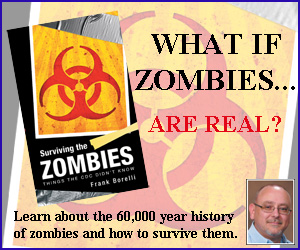Criticism:
1. the act of passing judgment as to the merits of anything.
2. the act of passing severe judgment; censure; faultfinding.
3. the act or art of analyzing and evaluating or judging the quality of work
Critique:
1. A critical review or commentary, especially one dealing with works of art or literature.
2. A critical discussion of a specified topic.
(definitions provided by www.dictionary.com)
 As with many of the articles I write, especially those that deal with the meaning of words and how we use them – and how our understanding of them may motivate our actions – I started out looking at the definitions. As a 35+ year police veteran and an 30+ year police trainer, it has always seemed obvious to me that there is a difference between criticism and critique. Think about it in this way and the difference becomes glaringly obvious: Would you rather have someone criticize your work? or critique your work? The first definition I found for criticism had these five words at the beginning: the act of passing judgment. Consider those five words and the negativity they imply. Passing judgment… In our court system, judgment is made after all the facts are weighed. In other words, criticism is delivered after the critique is performed. That is a huge difference that is very important and one we need to remember.
As with many of the articles I write, especially those that deal with the meaning of words and how we use them – and how our understanding of them may motivate our actions – I started out looking at the definitions. As a 35+ year police veteran and an 30+ year police trainer, it has always seemed obvious to me that there is a difference between criticism and critique. Think about it in this way and the difference becomes glaringly obvious: Would you rather have someone criticize your work? or critique your work? The first definition I found for criticism had these five words at the beginning: the act of passing judgment. Consider those five words and the negativity they imply. Passing judgment… In our court system, judgment is made after all the facts are weighed. In other words, criticism is delivered after the critique is performed. That is a huge difference that is very important and one we need to remember.
In virtually all training both critique and criticism take place. Critique identifies the deficiencies while criticism identifies whether or not a pass or fail “score” was attained. Obviously both are necessary, but if an instructor delivers criticism when critique is called for then he doesn’t properly serve the needs of the trainee. Equally problematic is if critique is delivered when criticism is called for. Unfortunately for many instructors, they never get taught the difference.
 The military has long known that as much as 75% of learning in any training exercise occurs after the exercise is over during the debriefing. Part of the debriefing SHOULD be a critique of the performance of those involved. If those involved didn’t accomplish the given mission or failed to demonstrate that they had mastered a given task, then criticism is necessary.
The military has long known that as much as 75% of learning in any training exercise occurs after the exercise is over during the debriefing. Part of the debriefing SHOULD be a critique of the performance of those involved. If those involved didn’t accomplish the given mission or failed to demonstrate that they had mastered a given task, then criticism is necessary.
To properly critique the performance of trainees or operators, first the instructor / debriefing authority has to have identified what the performance objectives were. I’ve been in my fair share of training scenarios wherein the instructor had no clue as to how the training should have been structured or what he was evaluating during any practical skills testing that was held. Such a lack of professional capability on the part of the instructor is an obvious mark of a good salesman… and a poor instructor. That’s the guy who never gets to teach at the same agency more than once.
It’s also been my experience that instructors who have identified the knowledge and skill objectives within the training they provide also know the distinct difference between criticism and critique and deliver both as appropriate. Now, here’s a reality of training: no instructor likes to fail a student / trainee. I’ve seen more than one instructor remediate a trainee ad nauseum… far beyond what should have been. Unfortunately there ARE trainees who just aren’t competent. Sometimes that is the fault of a poor instructor. Sometimes it is just simply that the trainee is incapable of mastering whatever knowledge or skill objectives have been presented due to some quirk in their background, mental or emotional make up.
 LtCol Dave Grossman tells of a study that was done wherein police applicants were required to make a decision about whether or not they’d shoot someone who was presenting a deadly threat to another police officer. The answer should have been quick and easy: shoot the bad guy. However, some of the applicants tried to find any other solution to firing the weapon. I guess I shouldn’t be so quick and willing to shoot the perpetrator, and there may be something to be said for trying to find an alternate and peaceful solution. Once it has been determined that no peaceful solution can be found, then the applicant has to choose to shoot the bad guy. Throughout the process where the applicant is assessing the situation and examining options the instructor / evaluator has the ability to critique the trainee’s articulated thought process. In the end, though, if the applicant fails to pull the trigger as justified and necessary, then they have failed to prove themselves capable of performing an intricate and necessary part of the police function. Criticism means telling that applicant, “Go seek another job.”
LtCol Dave Grossman tells of a study that was done wherein police applicants were required to make a decision about whether or not they’d shoot someone who was presenting a deadly threat to another police officer. The answer should have been quick and easy: shoot the bad guy. However, some of the applicants tried to find any other solution to firing the weapon. I guess I shouldn’t be so quick and willing to shoot the perpetrator, and there may be something to be said for trying to find an alternate and peaceful solution. Once it has been determined that no peaceful solution can be found, then the applicant has to choose to shoot the bad guy. Throughout the process where the applicant is assessing the situation and examining options the instructor / evaluator has the ability to critique the trainee’s articulated thought process. In the end, though, if the applicant fails to pull the trigger as justified and necessary, then they have failed to prove themselves capable of performing an intricate and necessary part of the police function. Criticism means telling that applicant, “Go seek another job.”
Anyone who teaches anything – including parents teaching their children – provides critique and criticism at given times. Critique can be used to fine tune knowledge and skills that have been previously taught and proven. The nuances that exist, especially in any judgment that involves subjective input, are endless. Kids learn right from wrong at a young age, but then have to learn to evaluate circumstance, measure their own emotions, and select the right thing to do… sometimes when their only choices are two not-so-great options.
 That’s very similar to what is done with adult learning. For cops and soldiers, parameters are set on virtually all duties. Policy and guidelines are set on all missions assigned. Usually, in accordance with controlling policy, or “implicit guidance,” what can and can’t be done is delineated. Reality is an unforgiving thing though, and all sorts of circumstances can pop up that aren’t covered by the policy or guidelines. Many agencies have Field Training Officer programs specifically designed to “fine tune” the judgment and skills of the newly graduated police recruit. New privates in any branch of the service have multiple layers of supervision that are cumulatively responsible for making sure that private performs as expected. If he makes a bad decision then a quick critique will straighten him out. Often that critique is accompanied or followed by criticism of “you did right” or “you did wrong.” Corrective action is frequently applied when “you did wrong” is determined. I certainly did my fair share of push-ups and other exercises when my performance wasn’t what it should have been during my military years.
That’s very similar to what is done with adult learning. For cops and soldiers, parameters are set on virtually all duties. Policy and guidelines are set on all missions assigned. Usually, in accordance with controlling policy, or “implicit guidance,” what can and can’t be done is delineated. Reality is an unforgiving thing though, and all sorts of circumstances can pop up that aren’t covered by the policy or guidelines. Many agencies have Field Training Officer programs specifically designed to “fine tune” the judgment and skills of the newly graduated police recruit. New privates in any branch of the service have multiple layers of supervision that are cumulatively responsible for making sure that private performs as expected. If he makes a bad decision then a quick critique will straighten him out. Often that critique is accompanied or followed by criticism of “you did right” or “you did wrong.” Corrective action is frequently applied when “you did wrong” is determined. I certainly did my fair share of push-ups and other exercises when my performance wasn’t what it should have been during my military years.
So, understanding the difference between criticism and critique is imperative when delivering training. If you are an instructor, remember that criticism should FOLLOW the critique and that it’s confidence-building to deliver your critique so that it ends on a positive note. Critique, after all, can be both positive and negative. If the positives outweigh the negatives then there’s a better chance that the criticism won’t occur. No matter which there is more of in the critique – positive or negative – try to end on a positive note if it’s at all possible. Although, another reality is that it’s a waste of time to end on a positive note in the critique if the end result is a failure to perform as required.
